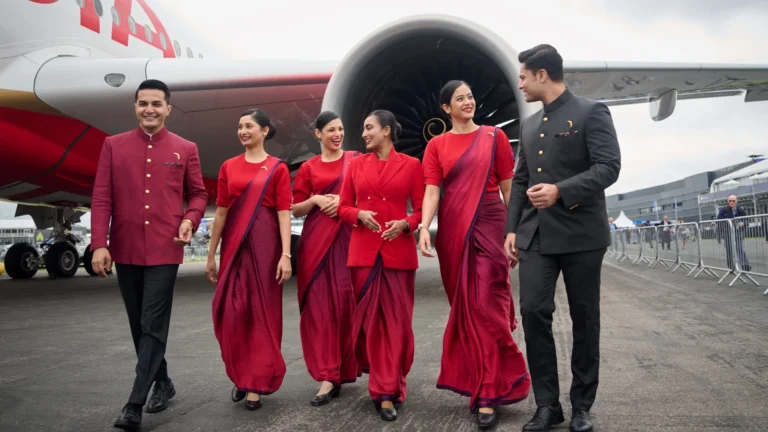GURUGRAM- Air India (AI) Training Academy, located on a sprawling 600,000-square-foot campus in Gurugram, is South Asia’s largest aviation training hub and a pivotal force in India’s aviation landscape.
Designed to meet global standards, the academy is committed to producing skilled, industry-ready aviation professionals through its comprehensive training programs and cutting-edge infrastructure.
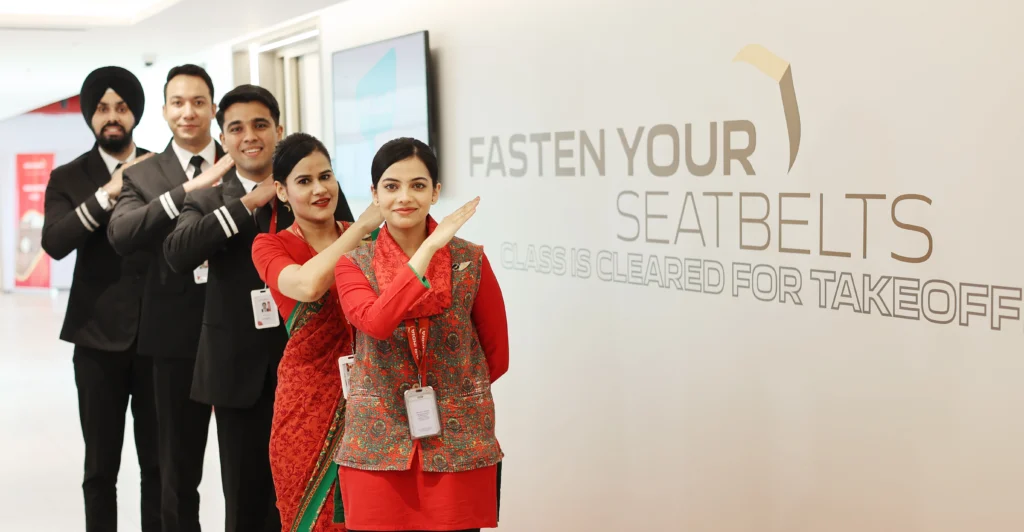
Air India Train Staff
“Our vision of becoming a world-class airline is rooted in establishing this state-of-the-art integrated training academy,” says Sunil Bhaskaran, Director of the Aviation Academy, Air India.
The academy offers a holistic training ecosystem for cabin crew, including modules on Safety and Emergency Procedures (SEP), service protocols, grooming, and voice modulation.
Ground and security staff are trained in critical areas such as departure control, customer service, and airport security. Additionally, management professionals benefit from specialized programs in commercial operations, HR, and leadership.
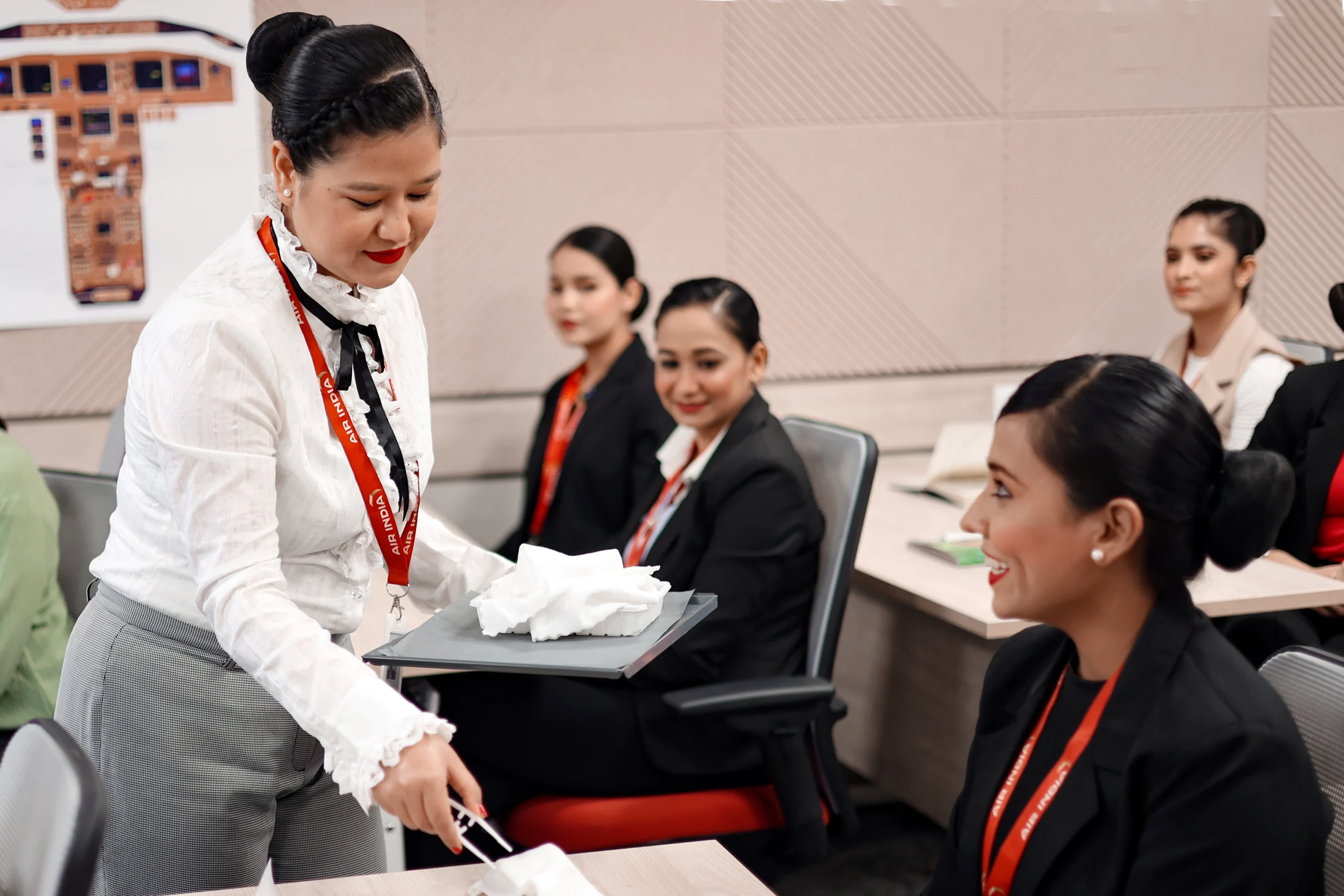
To further enhance pilot training, Air India is setting up advanced facilities within the same campus, featuring two simulator training centers developed in partnership with original equipment manufacturers (OEMs).
These centers will house over 20 Full Flight Simulator (FFS) bays to cater to the airline’s Airbus and Boeing fleet, ensuring pilots are fully prepared for current and future aircraft deliveries.
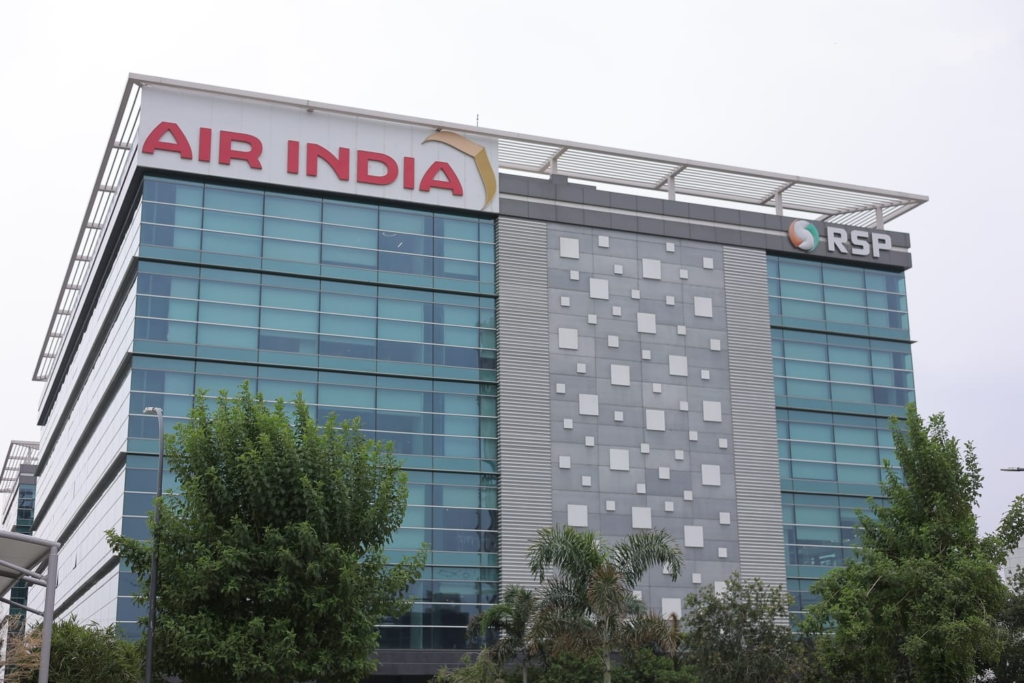
Training 50,000 Staff in Coming Years
The academy prioritizes hands-on training to equip Air India personnel with real-world skills. For example, door training prepares cabin crew for both routine and emergency scenarios, while advanced simulators and drill setups immerse them in emergency protocol applications.
A trainee shared their experience:
The spacious classrooms and immersive curriculum make learning both effective and comfortable. The hands-on approach ensures we’re well-prepared for any challenge, big or small.”
India, one of the fastest-growing aviation markets, requires a robust workforce to sustain its expansion. The Air India Training Academy is set to train over 50,000 aviation professionals in the coming years, spanning roles like pilots, cabin crew, ground staff, engineers, and security personnel.
To meet this demand, Air India is establishing a Flying Training Organisation (FTO) in Amravati, Maharashtra. The facility will feature 31 single-engine aircraft and 3 twin-engine aircraft, making it the first of its kind for an Indian airline.
In addition, Air India plans to open an Aircraft Maintenance Engineering (AME) school. This initiative aims to develop a skilled workforce essential for maintaining and operating modern aircraft, aligning with the airline’s recent fleet expansion plans.
These efforts will not only support Air India’s ambition to become a world-class airline but also strengthen India’s aviation ecosystem by nurturing the next generation of industry-ready professionals.
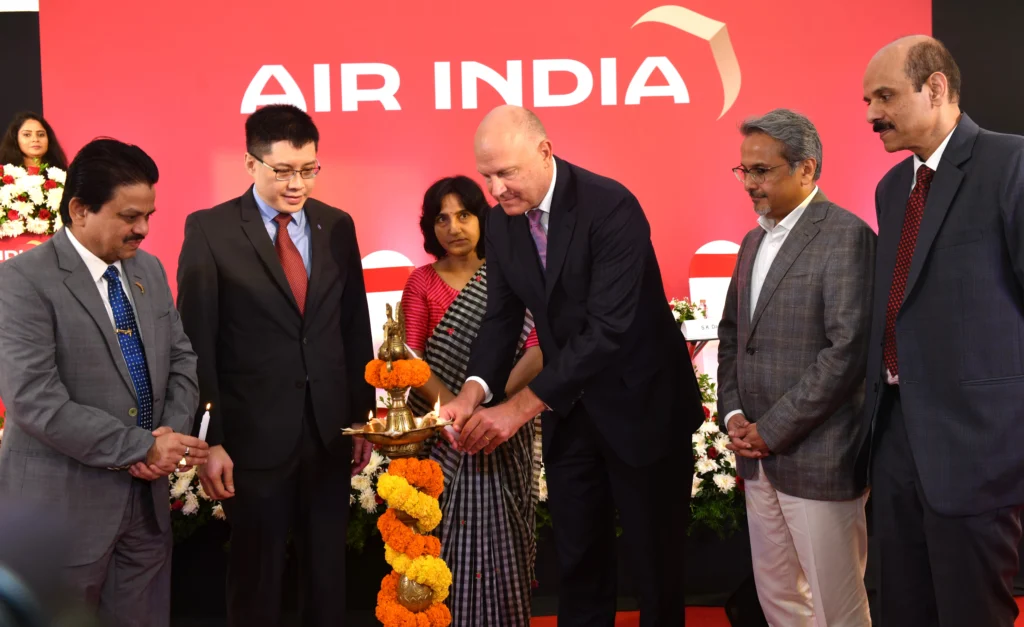
CEO Latest Remarks
Facing criticism over declining service standards, internal staff disputes, and outdated aircraft interiors, Air India’s Managing Director and CEO, Campbell Wilson, has outlined the complexities of the airline’s transformation.
Speaking to NDTV, Wilson acknowledged the scale of the challenge, describing it as “the Everest of corporate turnarounds.” He reiterated that the revival was designed as a multi-year initiative and is currently in its second year of a five-year overhaul.
Air India’s management has struggled to integrate its workforce, drawn from recently merged airlines Vistara, Air India Express, and AirAsia India. Each airline brought distinct work cultures, making it difficult to align job expectations and operational practices. Harmonizing the workforce has emerged as one of the most significant hurdles in the restructuring process.
The integration difficulties came to a head in March 2024, when Vistara pilots staged a coordinated protest by reporting sick en masse. This action, which extended into April, disrupted operations and highlighted dissatisfaction with new contracts introduced as part of the Vistara-Air India merger.
A key point of contention was a reduction in guaranteed flying hours from 70 to 40, which led to pay cuts for many pilots, particularly junior first officers.
In May, Air India Express cabin crew staged a strike, with many reporting sick to protest alleged mismanagement and merger-related grievances with AIX Connect (formerly AirAsia India). Initially, the airline management dismissed several striking crew members but later reinstated them following intervention by India’s Chief Labour Commissioner.
Wilson acknowledged the challenges of managing a large-scale operation, noting, “We carry 60 million passengers annually across the group and operate over 1,200 flights daily. While perfection isn’t always achieved, we need to be more consistent and meet customer expectations reliably.”
Stay tuned with us. Further, follow us on social media for the latest updates.
Join us on Telegram Group for the Latest Aviation Updates. Subsequently, follow us on Google News

